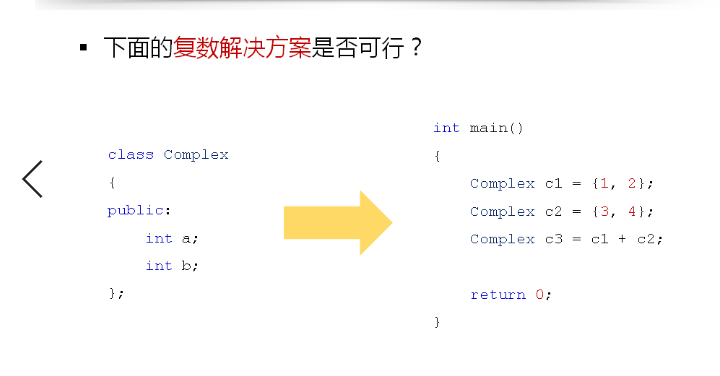The content of the article comes from Tang's courseware of Ditai Software College.
1. Review of Function Overload
- The essence of function overload is different functions which are independent of each other.
- Function Call Determined by Function Name and Function Parameters in C++
- You cannot get the entry address of the overloaded function directly through the function name.
- Function overload must occur in the same scope
2. Membership functions in classes can be overloaded
- Constructor
- Overload of General Membership Functions
- Overload of static member functions
Question: Can global functions, ordinary member functions and static member functions be overloaded?
- The essence of overloaded functions is multiple different functions.
- Function names and parameter lists are unique identifiers
- Function overloading must occur in the same scope (global functions cannot be overloaded with functions in other domains)
Case analysis: comprehensive analysis of class and overload
#include <stdio.h>
class Test
{
int i;
public:
Test()
{
printf("Test::Test()\n");
this->i = 0;
}
Test(int i)
{
printf("Test::Test(int i)\n");
this->i = i;
}
Test(const Test& obj)
{
printf("Test(const Test& obj)\n");
this->i = obj.i;
}
static void func()
{
printf("void Test::func()\n");
}
void func(int i)
{
printf("void Test::func(int i), i = %d\n", i);
}
int getI()
{
return i;
}
};
void func()//And the void func() function in the class does not constitute overload
{
printf("void func()\n");
}
void func(int i)//And the void func() function in the class does not constitute overload
{
printf("void func(int i), i = %d\n", i);
}
int main()
{
func();
func(1);
Test t; // Test::Test()
Test t1(1); // Test::Test(int i)
Test t2(t1); // Test(const Test& obj)
func(); // void func()
Test::func(); // void Test::func()
func(2); // void func(int i), i = 2;
t1.func(2); // void Test::func(int i), i = 2
t1.func(); // void Test::func()
return 0;
}
void func()
void func(int i), i = 1
Test::Test()
Test::Test(int i)
Test(const Test& obj)
void func()
void Test::func()
void func(int i), i = 2
void Test::func(int i), i = 2
void Test::func()
In-depth significance:
The significance of overloading:
- Hint function by function name
- Hint function usage through parameter list
- Extending the functions already existing in the system
Example: Significance analysis of overloading
#include <stdio.h>
#include <string.h>
//The strcpy function in C language is extended by function overloading. Extended functionality
char* strcpy(char* buf, const char* str, unsigned int n)
{
return strncpy(buf, str, n);
}
int main()
{
const char* s = "D.T.Software";
char buf[8] = {0};
//strcpy(buf, s);
strcpy(buf, s, sizeof(buf)-1);
printf("%s\n", buf);
return 0;
}
Think: Overloading can extend the functions already existing in the system, so can overloading expand more functions?
Is the following plural solution feasible?

Conclusion:
- Class member functions can be overloaded
- Overload must occur in the same scope
- Global functions and membership functions cannot constitute overload relations
- The significance of overloading is to extend existing functions.